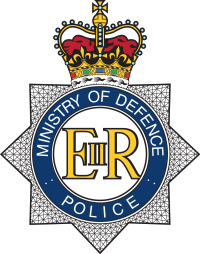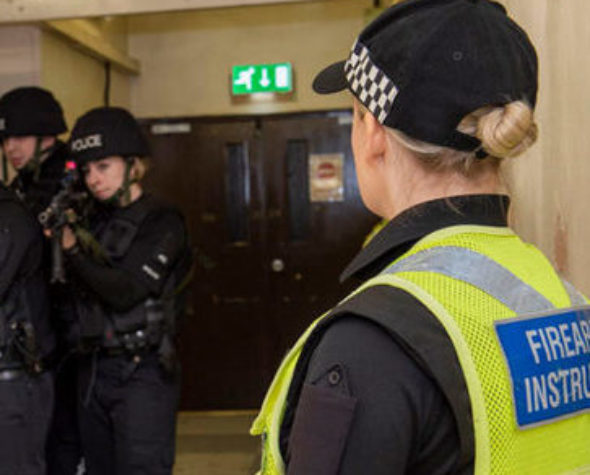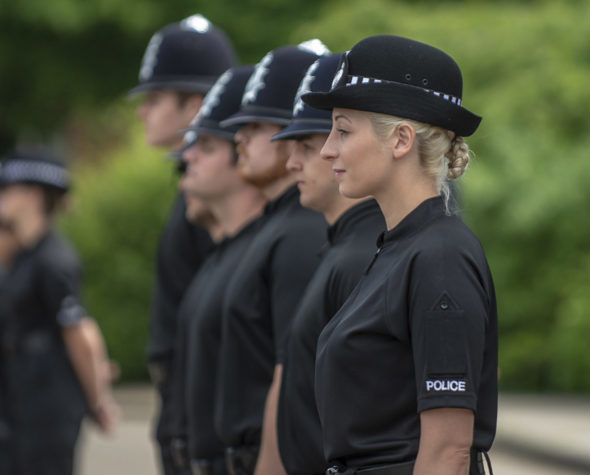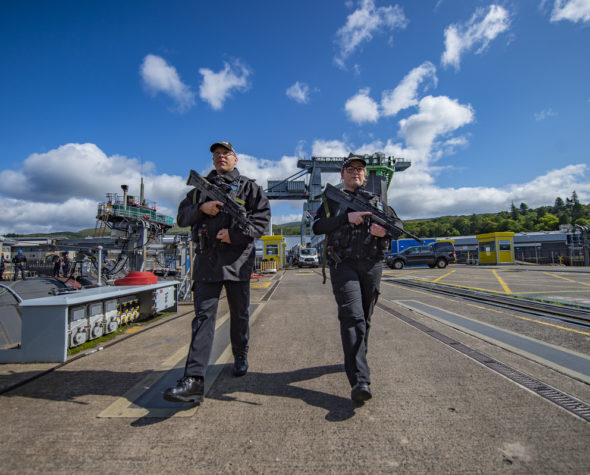The required medical standards for an MDP Authorised Firearms Officer
Our officers carry out roles that can be tough and physically demanding. To join us you’ll need to be fit and healthy.
Prior to an offer of employment, you will be required to successfully compete a medical assessment (including a drug and alcohol test) and a Job-Related Fitness Test (JRFT), as part of the recruitment process.
Upon receiving confirmation that you have been successful at the MDP competency interview, you will be invited to attend a pre-employment medical.
The process
Prior to medical you will be sent the following forms:
- MDP Medical History questionnaire: you are required to complete section 1 and then arrange for section 2 to be completed, signed and stamped by your GP
- MDP Opticians’ Form: this form must be completed, signed and stamped by a qualified optician
- MDP Audio 1 Form: this form must be completed by you (except for the last page which will be completed by the MOD OHSP Practitioner at your medical)
At your medical there will also be a requirement to complete a health surveillance respiratory questionnaire and a fitness to use breathing apparatus health screening questionnaire.
Further investigation will be required if any response indicates that you may not meet the standard.
In addition, candidates will be required to undertake the following tests:
- Audiometry
- Vision
- Blood pressure and pulse
- Urinalysis
- Lung function
- Height
- Weight/Body Mass Index (BMI) – waist-to-hip ratio
- Substance Abuse Testing (SAT)
- Alcohol Breath Testing
Medical standards – what you need to know
As a police officer, you will need to be able to hear your colleagues, members of the public and your radio in noisy surroundings. You will therefore need to be able to achieve the Authorised Firearms Officer (AFO) hearing standard unaided, in line with the standards governed by the College of Policing.
The hearing standard is derived from a sum of total hearing loss (in decibels – dB) within the low and high frequencies, as measured by ‘pure-tone air condition’ audiometry. Hearing will be tested unaided and standards must be achieved unaided.
Candidates with the following are unlikely to be suitable for the role:
- Sum of hearing loss more than 84db over 0.5, 1, 2 KHz frequencies
- Sum of hearing loss more than 123db over 3, 4, 6 KHz frequencies
Results are captured in the Medical Examination Form and any individual who is unable to hear to the required standard (as outlined above) without the use of a hearing aid, is deemed unsuitable for recruitment.
Routine annual audiometry testing is required for all firearms officers throughout their career.
Police Officers need a high level of visual acuity good enough to take in every detail in a situation. When handling a firearm and making decisions under pressure, your sight is integral to your confidence and safety. We therefore apply the following minimum visual eyesight standards:
- Binocular vision 6/7.5 aided or unaided
- 6/12 (or better) unaided or aided in worst eye
- Unaided binocular vision must be 6/36 or better (when successful correction has been achieved using soft contact lenses, the unaided standard need not apply)
- Uncorrected near vision – N8
- Corrected near vision – N8
The ability to accurately judge the distance of objects relies more on the size of the object, in relation to other objects, and the perspective and contextual clues in the environment, rather than binocular vision. Good visual fields are necessary to see threats from the extreme left or right. Visual fields are also useful in pursuit driving.
Assessment of visual field will be by Confrontation testing of each eye, to screen for impaired peripheral field of vision. Confrontation is a method of assessing visual field loss and relies on the tester having normal peripheral vision. The visual fields of both eyes overlap; therefore, each eye is tested independently.
A view of at least 120 degrees horizontally by 100 degrees vertically is required and this must be free of any large defective areas, particularly in the fovea. Defects smaller than the physiological blind spot will be acceptable.
If you have had laser surgery, a period of six weeks must have elapsed since surgery with no residual side effects and the required eyesight standards must be met. Refractive surgery such as LASIK, LASEK, PRK and ICRS can be considered.
To be an AFO, your colour vision must also meet a high standard. Dichromats and severe anomalous trichromats are not suitable for AFO roles. Monochromats (individuals with complete visual colour deficiency) will also be assessed as unsuitable. The use of colour correcting lenses is not acceptable.
Candidates are required to have their colour vision tested by their optician. The initial test performed is the Ishihara test. If a candidate fails the Ishihara screening test, they are required to pass both the Farnsworth-Munsell D-15 (fail if 2 or more major crossings) and either the 2nd edition City University test (fail if 5 or more total errors or 2 errors on the large circle plates) or if this is unavailable, the 3rd edition City University test (fail if 3 or more errors on part two of the test).
Candidates who are consistently diagnosed as protanomalous, in two out of three tests, should also be excluded even if they have only 2-4 errors on City University or one major crossing error on the D15 test.
People who are overweight are more likely to struggle with the physical demands of policing, including performing effectively in the role of an AFO. Conversely, underweight people may be short of the muscular strength required to carry the essential Personal Protective Equipment (PPE) required for the role.
The Body Mass Index (BMI) standard for police recruitment is < 30 but no lower than 19, with a waist circumference of < 40 inches for men and < 35 inches for women. However, applicants who fall out-with the BMI and waist circumference but have a waist to hip ratio of < 0.95 for men and < 0.80 for women, will be assessed as meeting the requirement.
Where a male applicant’s body fat is less than or equal to 21% and a female applicant’s body fat is less than or equal to 30% this is acceptable. You can check your BMI on the NHS ‘Live Well, Lose Weight’ pages.
Any candidate who has a resting blood pressure reading that is consistently 140mmHg / 90 mmHg diastolic or more will not be assessed as suitable for the AFO role.
There are some medical conditions that may prevent you from being employed by the MDP. This is because the conditions have been identified as being potential risks to the individual, when carrying out the role of an AFO within Defence establishments and other customer environments.
All medical conditions will be assessed as part of the pre-employment medical process.
To enable candidates to make informed decisions, clarification on some of the most common conditions are outlined as follows:
Asthma: You will be assessed individually. If your asthma is managed with medication, such as inhalers, you may still be accepted into service.
Diabetes: If you have Type 1 diabetes it is unlikely that you will be found suitable for employment in the MDP. Further information, and assessment will be needed, and each case will be assessed on its merits.
For Type 1 and Type 2 diabetes, you will need to demonstrate that your condition is managed well and that you can safely adapt to the demands of the job (including shifts and variable meal patterns).
Epilepsy: It is unlikely that you will be found suitable for employment in the MDP, but you will be assessed individually based on your history of epileptic fits after the age of 5 years.
Stress, anxiety or depression: Our AFOs are on the policing frontline and are public facing. They are required to deal with a wide range of demanding situations which necessitate the ability to be able to process information, to make decisions and to undertake appropriate courses of action.
Medical cases involving stress, anxiety or depression will be assessed individually, taking in to account the demands and responsibilities of the AFO role. Further information will then be required and may include a face-to-face assessment.



